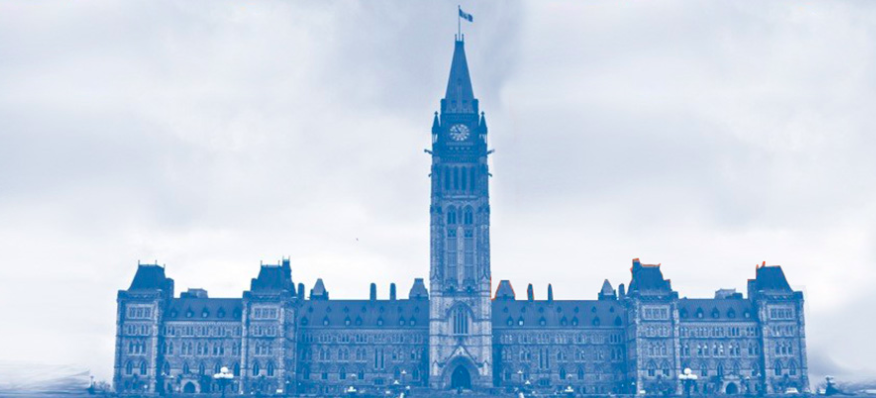The Canada brand has a human rights problem
For years, Canadian multinationals have been implicated in serious human rights abuses and environmental damage around the globe. The communities and workers who suffer these harms are often unable to access justice or remedy, while human rights and environmental defenders who stand up to powerful corporations frequently face violence, intimidation or criminalization.
These abuses have persisted despite decades of public pressure and endless corporate commitments to voluntary codes of responsible business conduct. For over a decade, the Canadian government has explicitly “expected and encouraged” Canadian companies to respect human rights throughout their global operations. [1] The United Nations Guiding Principles on Business and Human Rights, adopted unanimously in 2011, set a clear global standard outlining the responsibilities of businesses to prevent, address and remedy harms caused. Yet in the absence of binding rules that enshrine these principles into Canadian law, companies are too often failing to deliver on their responsibilities.
Workers, women, Indigenous peoples, human rights and environmental defenders, and other marginalized communities harmed by powerful companies can wait no longer for Canada to take action to address corporate abuse. Canada has a duty to act, and urgently.
Canada’s failed approach is out of step with global trends
Canada claims to take its international obligations seriously, yet has failed to implement mechanisms or policies to ensure that companies respect human rights and the environment overseas. Instead, Canada continues to rely on a suite of voluntary measures aimed at promoting responsible business conduct. Yet experience shows that voluntary measures alone are inadequate at curbing corporate abuse.
In continuing to rely on ineffective voluntary measures, Canada is falling behind global leaders.
To end corporate impunity, several jurisdictions, including some of Canada’s largest trading partners, have enacted, or are in the process of developing, laws that require companies to review all their business activities, identify actual and potential risks to people and the planet, take steps to mitigate and address these risks, and ensure remedy for those harmed. This is called human rights and environmental due diligence (HREDD).
Building on this global momentum, and on Canadian civil society consensus starting points, the Canadian Network on Corporate Accountability has released draft model legislation that provides lawmakers with a blueprint for writing into Canadian law the corporate duty to respect human rights and the environment.
Experts such as the vice-chair of the United Nations Working Group on Business and Human Rights, Surya Deva, have made it clear that Canada cannot claim leadership on promoting business respect for human rights until such legislation is in place. The Canadian parliament’s international human rights subcommittee has also confronted Canada’s exclusive reliance on voluntary measures to address Canadian corporate abuse overseas. In a recent report, the committee members from all four major federal parties echo Deva’s appeal in calling on Ottawa to “introduce legislation requiring Canadian corporations to conduct human rights due diligence” to address adverse impacts arising throughout their global operations and supply chains. [2]
The time has come for enforceable human rights legislation
This model legislation, the Corporate Respect for Human Rights and the Environment Abroad Act, would render enforceable the Canadian government’s expectations regarding the overseas conduct of Canadian companies. It would help Canada fulfill its international human rights obligations by responding to all three pillars of the United Nations Guiding Principles on Business and Human Rights. [3] And it would allow Canada to catch up to its European allies — including the European Union, Germany and France — who are piloting the shift from ineffective voluntary measures towards comprehensive human rights due diligence laws.
Specifically, the proposed law would:
- Require companies to prevent adverse human rights impacts and environmental damage throughout their global operations and supply chains;
- Require companies do their due diligence, including by carefully assessing how they may be contributing to human rights abuse or environmental damage abroad and by providing access to remedy when harms occur;
- Result in meaningful consequences for companies that fail to carry out and report on adequate due diligence; and
- Establish a legal right for people who have been harmed to seek justice in Canadian courts.
So long as companies are allowed to continue profiting from negligence or misconduct, the abuses will continue. Our model legislation would change that by holding companies legally accountable for the social and environmental costs of their activities abroad.
Notes
- See Canada’s first CSR strategy for the international extractive sector (2009): https://www.international.gc.ca/trade-agreements-accords-commerciaux/topics-domaines/other-autre/csr-strat-rse-2009.aspx?lang=eng
- SDIR Report n⁰8, June 2021.
- These include the state duty to protect against human rights violations (including by non-state actors such as Canadian companies); the corporate responsibility to respect human rights (and the role of human rights due diligence in fulfilling that responsibility); and the right of impacted people to have effective access to remedy.




